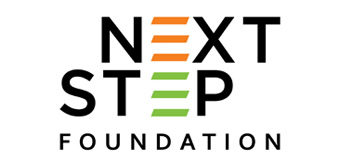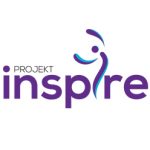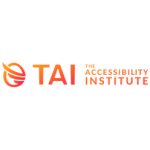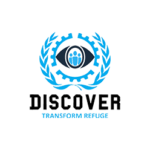Disability Integration into the Workplace – How to Cope and Thrive
With today’s workforce becoming increasingly diverse, inclusion is essential to creating a productive and fair work environment, not merely a passing trend. However, individuals with disabilities often encounter additional challenges when adjusting to work, particularly in their interactions with non-disabled colleagues.
While diversity undoubtedly brings benefits to businesses, ensuring that everyone feels appreciated, respected, and free to share their skills and viewpoints requires effort.
Exploring the Employment Dilemma
A study revealed that in Kenya alone, only 33.3% of the disabled population is employed, equivalent to approximately 1.48 million people.
Additionally, research conducted across three sub-Saharan African nations—Kenya, Uganda, and Zambia—highlighted the significant struggles faced by people with disabilities in finding employment.
Discrimination from both employers and co-workers emerged as a major obstacle, with half of the Kenyan participants describing challenges in accessing mainstream employment opportunities.
This discrimination hindered their ability to secure regular employment and impeded career advancement, including promotion opportunities. Additionally, some participants faced difficulties obtaining financial support, such as loans, for entrepreneurial endeavours.
Few individuals had the chance to work for organizations dedicated to supporting disabled individuals, known as Disabled People’s Organizations (DPOs). Inadequate DPO infrastructure, particularly in nations like Zambia, further exacerbated the challenges faced by disabled individuals in accessing suitable employment opportunities.
As part of our strategy at Next Step Foundation, we aim to empower individuals with the necessary skills, training, and job placements through our impactful efforts. This includes comprehensive training in soft and interpersonal skills, such as interviewing skills, to ensure their holistic readiness for the workforce. We have observed that this aspect is crucial for their integration into the workforce, effectively addressing a significant part of their challenges.
Although these obstacles seem overwhelming, it could be alluring to give up on the aim of finding work completely. But employment is more than just a way to achieve financial independence for a lot of people; it gives them a purpose in life and a way to connect with others. Without these benefits, there may be a noticeable decline in both physical and emotional well-being.
While the challenges faced by individuals with disabilities in the workplace are significant, it’s important to explore strategies for overcoming these obstacles and achieving successful integration into the workforce.
Coping with disability at work
Build Your Self-Confidence
Building self-confidence through understanding one’s disability involves understanding how the disability affects oneself, both physically and emotionally. This includes recognizing one’s strengths and capabilities despite any limitations imposed by the disability. By embracing and accepting the realities of the disability, individuals can develop a positive self-image and cultivate confidence in their abilities to navigate challenges and succeed in various aspects of life, including the workplace.
Seek Support
No matter how you choose to communicate, it’s important to discuss your concerns with someone. Sometimes, you may simply need to confide in a friend, while other times, it may be necessary to approach your boss directly. Seeking support from a therapist or social worker can also be highly beneficial. Living with a disability often brings additional challenges, and it’s common to feel isolated. Take advantage of available resources and support networks in the workplace, such as disability inclusion programs, Employee Resource Groups (ERGs), or mentorship programs. These networks offer valuable guidance and assistance.
Self-Advocacy
Advocating for your needs is crucial for thriving in your workplace. This means requesting any tools or procedural changes necessary to overcome physical barriers or work patterns that may not align with your needs. For example, you might request an adjusted office layout to accommodate wheelchairs, among others. It’s important for individuals with disabilities to advocate for themselves by clearly communicating their needs, accommodations, and strengths to their employers. This proactive approach can foster an inclusive and supportive work environment customized to their requirements.
Continuous Learning and Skill Development
Continuously improve skills relevant to the job through training programs, workshops, and professional development opportunities. This includes job-specific skills and soft skills such as communication, problem-solving, and teamwork.
Build Positive Relationships
Nurture positive relationships with colleagues and supervisors through team activities, networking events, and social gatherings to enhance collaboration and support in the workplace. These relationships play a crucial role in developing resilience by providing reassurance, guidance, and problem-solving opportunities. Cultivating supportive connections creates a reliable support network during challenging times, contributing to an individual’s ability to bounce back from adversity. Just as resilience is a learned skill, building and nurturing positive relationships is essential for fostering resilience in the workplace.
Maintain a Positive Mindset
Maintain a positive attitude and mindset, focusing on strengths, abilities, and accomplishments rather than limitations. Cultivating resilience and optimism can help overcome obstacles and thrive in the face of adversity. Hearing the thoughts and experiences of other renowned people who experience disability can be helpful in maintaining a positive mindset.
Proactive Job Search for Better Alignment
Searching for a new job if the current one does not favour them involves recognizing one’s worth and seeking opportunities that align better with their abilities, needs, and career.
Normalize Difficult Days
Individuals should not bear the entire burden alone. Addressing wrongdoing or unfair treatment is crucial, and advocating for necessary reforms may be necessary. Managers and policymakers also have a responsibility to act. Additionally, accepting one’s disability may pose challenges, but it’s important to acknowledge and work through these emotions. Remember, not every setback at work reflects one’s capabilities, and it’s normal to have difficult days without attributing them to anything beyond life’s natural fluctuations.



















